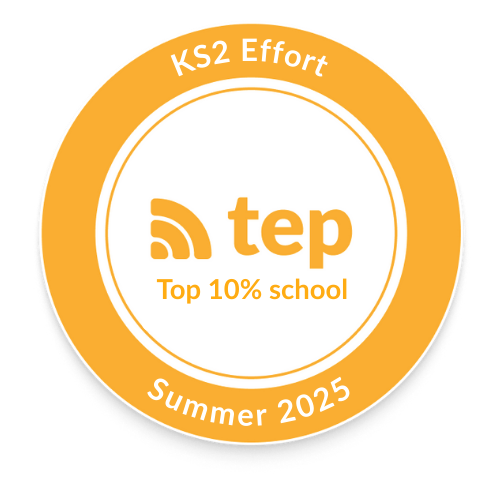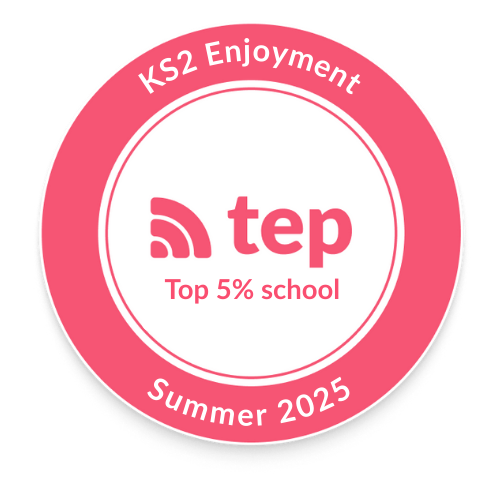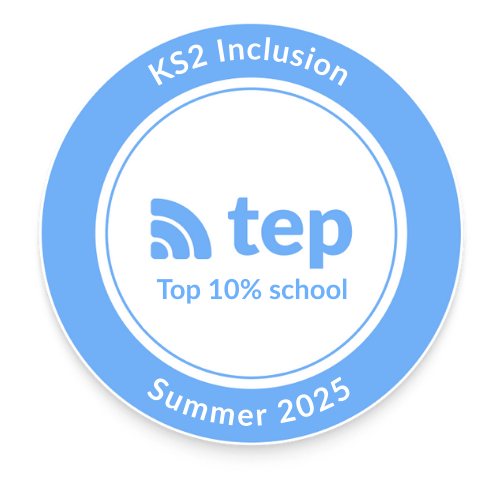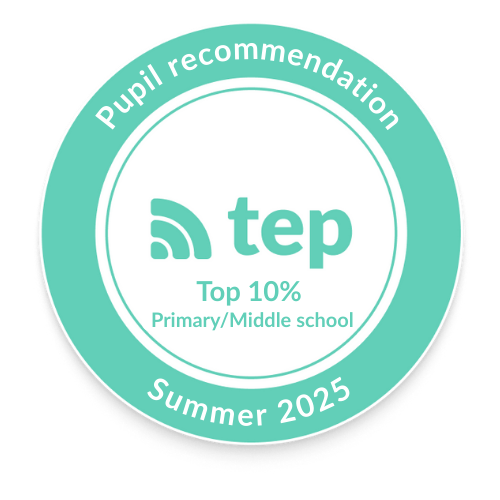Pupil Leadership
We believe the best schools have a pupil lead culture where children take on key leadership roles and get their voice heard. We whole-heartedly value the work of our pupil leaders, using it to shape the teaching and learning that happens at our school. We are moulding leaders of the future, ready for work, ready for the world. We strive to craft confident and articulate leaders who can share their views to any audience and apply their leadership skills to real life situations.
The aim of the various teams within the Pupil Leadership Team is to enable children the chance to have leadership within the school, ensuring that their voices and opinions are heard. We are a pupil lead school, regularly receiving pupil voice to make improvements. Therefore, we are giving the children the opportunity to assist with those improvements along the journey.
At Foxfield, we actively encourage children to challenge, discuss and debate issues which are important to them. Our children feel safe to share their opinions and viewpoints. This is gathered through pupil voice surveys, learning walks and a pupil voice suggestion box. The feedback the junior leadership team receive from their peers is discussed at regular junior leadership team meetings and then acted upon accordingly. Members of the junior leadership team are assigned different roles and oversee their own sub teams, which are supported by a linked member of staff. These teams monitor aspects of the school including the curriculum, the behaviour and wellbeing of pupils at our school and our school environment. To align with our global curriculum, our leaders champion an eco-friendly approach to our school environments.
We are delighted that our three blogs relating to Foxfield's work on 'Pupil Leadership' have been published across the Inspire Partnership. Please take a read about the implementation of three key pupil leadership groups within our school.
Junior Leadership (JLT)
| JLT Newsletter |
|---|
| May |
Pupil Leadership by James Gold
“We have the power to change things in the school” – Year 6 JLT member
When I first realised I wanted to be a teacher, my aim was to create paving stones for the children to use as a way to further both their knowledge and their empowerment as young people. I myself loved school as a child: the daily excitement of wondering what we would be learning each day and building quality relationships with my classmates and teachers. I adored learning and found it enjoyable to work in teams. As I got older, however, I realised that there was nothing in place in regards to children making a change within my primary school or local area. I look back and think that as much as I loved my primary school life, I did not have an opportunity to leave a mark of change within the school or community.
This was an area I wanted to focus on straight from my NQT year, giving the children the opportunity to become leaders themselves. Every class I taught within Key Stage Two, I enabled the children to become leaders, from relatively simple tasks such as milk monitors to class ambassadors. We often discussed about the ‘why’ we were learning specific topics, how we could apply this into our everyday lives and how our actions could make a difference within the world. This may seem like nothing new in today’s schools, however ten years ago schools were primarily teacher-led. It was apparent that although children may have been told they could help lead within the school or local community, this may not have necessarily been the case as teachers still led discussions or agendas.
Fast forward to joining Foxfield, where during my interview I was asked what impact I would have on the school. “Pupil leadership” I replied, “I want to enable children to have a true impact within the ethos of the school and local area.” In my first year at Foxfield, I led a research project entitled ‘How to promote the emotional well-being and development of boys’. This gave me the opportunity to work with a specific group of children and discuss ways with them that would benefit and enable them to improve in their reading ability but more importantly social and emotional well-being. This was achieved by the children generating ideas, along with my own, to create a sustainable, enjoyable and effective method for them to improve those skills. The techniques both the children and I established have since been trialled by other teachers within our school, showing that the decisions of those children have made an impact on the school’s approach to those specific vulnerable groups.
While I was working with a small selection of children throughout the year, I was tweaking the ideas made with my group to look at how these can be utilised within a whole school environment focusing on the question: ‘How can we become a pupil-led school?’ From this question, Foxfield Pupil Leadership was created.
The Why
In order to achieve an effective impact of pupil leadership in Foxfield, myself and my team members set out to establish why pupil leadership is so important. At Foxfield, we believe the best schools have a pupil led culture where children take on key leadership roles and get their voice heard. We whole-heartedly value the work of our pupil leaders, using it to shape the teaching and learning that happens at our Inspire schools. We are moulding leaders of the future, ready for work, ready for the world. From this, we have embedded Junior Leadership Teams of children that act as a link between their peers, staff, SLT and our Governors. The intent is to offer children the opportunities to develop our school and local community, so that it continues to grow, thrive and succeed.
“I’m really excited to be part of the JLT Subject Leadership Team as I feel I could really help the teacher improve my given subject.”
– Year 6 Junior Subject Leader
“With this opportunity, I look forward to telling the teacher my ideas about the subject that would make it more appealing to pupils.”
– Year 5 JLT member
The Implementation
At Foxfield, the children are actively encouraged to challenge, discuss and debate issues which are important to them. Because of this, they feel safe to share their opinions and viewpoints. This is gathered through pupil voice surveys, discussions with teachers and a pupil voice suggestion box. The feedback the Junior Leadership Team receive from their peers is discussed at regular JLT meetings and then acted upon accordingly.
Members of the JLT are assigned different roles and oversee their own sub teams, which are supported by a linked member of staff. Our Pupil Leadership Teams are made up of 7 groups: the JLT, Digital Leaders, Eco Warriors, Playground Buddies, Changemakers, Sport Leaders and Girl STEM Leaders. These teams monitor aspects of the school including the curriculum, the behaviour and wellbeing of pupils at our school and our school environment. To align with our global curriculum, our leaders champion an eco-friendly approach to our school environments.
We have created an environment where the children strive to be leaders of their own learning and behaviour. In order to set the example, children within the Pupil Leadership teams are working together to have a positive impact both around the school and our local community. Pupil Leadership gives a forum for gathering pupil voice: this conversation allows for children to actively co-construct the learning journey with their teachers and subject leaders.
Our aim is for our children to have the opportunity to make their voices heard and have an input into policies, lessons. By having a platform to be leaders around the school, it gives our children the drive and confidence to apply these skills in extra-curricular groups, secondary school and employment, ensuring that they become successful members of the local and global community in the 21st century.
Initiatives
An example of a Pupil Leadership application
Our first priority was to reinvent the concept of the Junior Leadership Team. Rather than following the original method, the teacher choosing their best behaved children or the class voting for their friends or the most confident children, we began the process of the children writing an application based upon a criteria. This made us aware of the skills the children believe they possessed and how committed they would be to their roles as the year progressed, but ultimately their leadership qualities. We included a question in the application about what the children would change about the school if they had the opportunity. Once we received the applications, I met with the children in the style of an interview to give them the experience of applying for a job and how they would react to success or failure, both important aspects of being a leader. Class teachers also used these applications within their own classes: the children presented their cases to their peers before being voted in based on the merit of their presentation. This method became a great success as it enabled children from all backgrounds to become members of the various pupil leadership teams. As a result, our teams are incredibly inclusive, comprising of children from a variety of gender, cultural and economic backgrounds along with children from our SEND register, allowing us to proudly state that all voices are represented and heard. This truly meant that groups of children would not be marginalised or their opinions were not presumed by someone else, ensuring that when we discussed issues, every group were able to have their say.
Once the teams were created, I met with the JLT to explain the expectations of the year: they are the leaders. If they want to discuss and chase up issues that relate to the school or local community, we will run with it. If they had ideas of how certain aspects of the school could be improved, this was the platform to do so. Very quickly, the JLT members, ranging from years 3 to 6, assigned themselves roles, such as person who writes the minutes, who takes charge of the display’s suggestion box, who leads the conversations and so on. These roles would also change throughout the year, allowing each child to be involved in all aspects of the process. Rather than the teacher solely deciding on topics to discuss and choosing what needed to be changed around the school, the children were able to meet once a week to decide on issues and feedback to their classes. Even when I had agendas that I wanted the JLT to sort, I allowed them to discuss their own methods in achieving the task, thus showing leadership.
An initiative we started last year was the introduction of the ‘Junior Subject Leaders’. The children’s role is to work alongside a subject leader and showcase the subject to the rest of the school and visitors from the mind-set of the child. To achieve this, the children have regular meetings with the subject leader and assist them with their opinions towards books, pupil voice and lessons. The impact Junior Subject Leads have on the children themselves is that they have the opportunity to have their voices heard and play a key role in their specific subject both short and long term. It gives the children an insight to the leadership roles within a subject such as generating strategies to improve the profile of a subject and implementing them as well as working closely with a leader to see what the success criteria is that each teacher is looking for within a subject.
As well as this, there has been a positive effect on staff, being that the subject leaders assist with collecting data, pupil voice, supporting parental sessions and staff PDMs. This enables the staff to send messages to the children more effectively through JLT meetings as well as collecting pupil voice in order to adapt their subject to further benefit the child. In the long term, this will ensure that a pupil-led culture is clearly seen throughout the school and curriculum from this initiative.
The Junior Subject Leaders also meet with the JLT to collect evidence throughout the school for their subject. As well as this, they have helped lead parental workshops and staff meetings, giving us the opportunity to experience what it takes to be a leader.
So far this year, the JLT have been meeting weekly to discuss various issues raised by the children around the school and finding solutions. One of the points presented was improving the school dinner menu. From these discussions, the JLT met with Chartwells, who provide our school meals, to taste the improved proposed menu and give our opinions, ensuring that our voices were a key part to the changes made to the menu. It is from these discussions along with further pupil voice, that the attitude towards the food has been more positive. The JLT have continued to work with Chartwells throughout the year, working collaboratively to design special themed menus.
Another key target for the JLT is achieving the anti-bullying award for our school. The children have worked together to discuss what the definition of bullying is, what examples of bullying happen within the school and find ways to prevent it from continuing. At various times throughout the year, the JLT led assemblies on anti-bullying which we hope will help achieve the award, but more importantly, prevent bullying from happening.
Finally, the exciting prospect that I am most proud of within the various Pupil Leadership initiatives in the introduction of our Foxfield JLT newspaper, a half-termly paper written for the children, by children. The thought behind this was that when discussing how children perceive the news, we deliberated the idea about having a newsletter from the perspective of the child, reporting news within the school that is interesting to us. Key areas within our paper we wanted to report were curriculum highlights, interviews of people within the school, celebrating our own learning reporting current affairs that may take place at school. All of the content is essentially researched, reported and written by the children, with myself working as an editor along with my junior subject lead assisting me in making any grammatical and layout changes. Our concept was to have a section that reports news of key events within the school that may be found in the newsletter or website but presented in a way that they children will find interesting and want to find out more themselves. Along with this, we also include an ‘in focus’ section in which any key issues or initiatives within the school can be highlighted. Our first edition focused on achieving the Anti-Bullying Quality Mark as it enabled us to communicate the school’s steps in place to tackle bullying as well as advice for the parents themselves. Even though our policy is on the website, we found that this was a more effective way to send the information out. A popular section for the children was the interview section where members of the JLT interview adults who work at Foxfield, from SLT to the kitchen staff. This idea was to break down the stigma that “teachers live in the school and therefore have no life outside of the classroom.” We wanted to highlight that teachers are normal human beings that have interests and hobbies and are passionate about their role within Foxfield. The members of the JLT worked together to generate their own questions and interview methods and went out to interview their chosen adult. After collating the
interviews so far, the children have created a timeline of which interviews will be realised in which edition, creating a healthy balance of the various members of staff around the school. We found that the first edition was a great success, with children, parents and staff alike showing a keen interest in the content and looking forward to receiving the next edition. As this is an ever evolving concept, I regularly seek advice from the children as to what they want included in each edition. We take feedback from the children to find out what the successes were from our first edition which can be continued and what could be improved for next time. From this, we are working with our digital leaders to set up an upcoming podcast and radio show in which we will discuss issues within the school, such as the lunch time menu and weekly highlights.
Eco Warriors
THE FOXFIELD ECO WARRIORS BY SINEAD REED
Twitter: @foxfieldpupil
The Why
“We want to tackle global warming and climate change and take action for a better future. We need to make our voices heard and make a difference.”
Inspired by the climate action happening all over the world, passionate and hardworking children at Foxfield have come together to form the Eco Warrior team. Our vision is to create a more sustainable and eco-friendly future through local changes, starting within school and moving out into our wider community. Children are aware that responses to the environmental issues facing our world today. Deforestation, global warming, plastic pollution, will have a huge impact on their futures. Planet Earth is our home and will be our children’s home for many years to come, and they deserve to have their say when it comes to taking care of it.
The Implementation
Before starting the journey to establishing a successful Eco Warrior team, I began to form a vision of the impact I wanted this to have on the school and most importantly, the children. My action plan was created with three main targets in mind; to achieve the Eco Schools Bronze Award, to make Foxfield school more eco-friendly. We gave them the title of Changemakers, responsible for working toward the Global Goals that underpin our curriculum. Achieving these targets would be a joint effort involving the whole school, including the staff, and would involve assemblies, projects and parent engagement. I also wanted to ensure that environmental issues were being taught and discussed explicitly in classrooms. This was made very easy with the implementation of our global curriculum, which covers many topics related to sustainable development.
The position of Eco Warrior was a very popular one, with lots of children applying for the role back in October. Children were asked to give their reasons for wanting to be a part of the team, and the passion for our world and our environment from the children at Foxfield was clear.
“I want to help our planet and the environment and make sure it is a healthy place for us and the animals to live.”
The team was established, and we had our first meeting discussing our role and the impact we wanted to have. Using the Eco Schools website, we decided which topic actions we wanted to focus on throughout the year and began to form our own action plan. The Eco Schools programme follows a seven step process which aims to bring multiple elements of sustainability together to make schools as eco-friendly as possible. The topic actions we chose were water, healthy living and marine life. Our aim was to focus on one topic each term.
The Impact
Through establishing the Eco Warriors, we have begun to ensure that children are leading the changes they want to see in the world and making sure their voices and opinions are heard when it comes to some of the most important issues presently affecting them. The team are meeting every other week to ensure we are following our timeline to achieve the targets on our action plan, as well as sharing our thoughts and ideas as a group and spending time together as like-minded children and adults who all share the same vision. Through our hard work and commitment to our action plan, the children have already achieved the Bronze Eco Schools Award.
Using our action plan, the team began to organise assemblies and events to raise the profile of our team. As water and sanitation was a topic being covered in Year 5, we decided to invite a volunteer from WaterAid to deliver a whole school assembly to raise awareness of this issue. Children were shocked to discover just how much water it takes to do every day activities such as washing our hands or brushing our teeth. It was also important for the children to understand that water and sanitation should not be taken for granted and that there are many people living in other parts of the world that do not have access to clean water.
Our second topic action for the spring term was healthy living. The children wanted to highlight the importance of a healthy diet and exercise, and the benefits this can have on people’s physical and mental well-being. With this in mind, we worked hard to plan a food and fitness event for parents, staff and pupils. The team helped me to lead a workout for parents and teachers, who after were able to enjoy our homemade brownies, vegan chilli and other treats whilst hearing more about the role of the Eco Warriors at Foxfield and the children’s reasons for joining. The event ended up having a huge turnout, with many parents suggesting similar events in the future, and the children loved having the opportunity to be in charge and show their incredible leadership skill.
Foxfield Change Makers
THE FOXFIELD CHANGEMAKERS BY SARAH GOODWIN
Twitter: @foxfieldpupil
The Why
‘I want to be like Greta Thunberg. We need to stand up and make change now if we want our futures to be better.’ – Year 5 Changemaker, Foxfield.
Building upon the successes of the team last year, the Foxfield Changemakers have continued with their vision to make local changes that will impact their future. They have come together with an eagerness to make their community better, which is something that they all care deeply about. The aim of this is to create responsible, ambitious and passionate leaders that will continue to campaign and raise awareness of the issues that they face locally and nationally into the future.
The Implementation
Before beginning the journey of the Changemakers, I first re-established the link between Foxfield Primary School and the charity Citizens UK, in particular with Greenwich Citizens. Through this collaboration, the Changemakers are able to use their influence and already formed connections to continue to express their opinion to the local government including Matthew Pennycook (our local MP) and Danny Thorpe (the leader of Greenwich Council).
To apply for the role of a Changemaker, the children in years 5 and 6 were invited to a meeting and asked about any changes they would be like to see in the world. There was an overwhelming response to this, where many of the students spoke with passion and determination about climate change, homelessness and the local area. This highlighted to me the impact of our global curriculum, where many children reiterated the topics they had been studying. By being given a voice, the children have begun to understand that change can be achieved through standing up and speaking out, which is a motto frequently referred to by the Changemakers. Their passion and knowledge has radiated from them since the beginning of the year and has fuelled their commitment to the team.
The Impact
One of the first steps of the Changemakers was to learn the cycle of change, which is comprises of six key steps and support the children to develop as leaders and build power:
The children utilise multiple stages of this cycle during our weekly meetings, where every session has a particular topic or area of focus. The children are encouraged to plan and deliver an action through speeches, songs, role plays and letters. They then deliver these to their peers and have the opportunity to reflect on whether or not they think their action would have the intended impact. They have practiced speaking to many people in power: Miss Bansil, Danny Thorpe, Matthew Pennycook and even the Queen! The skills the children have learnt are transferrable to our global curriculum, the school environment and their futures.
Together, we have delivered several actions that have begun to reach the intended audience. At Christmas, the children designed and sent a card to the Greenwich Council leader (Danny Thorpe). On the outside they drew and considered everything that was positive in the world and on the other everything that has a negative impact on the world. Inside the card, they introduced themselves and expressed their plans to work closely with him in the future.
They also planned, rehearsed and filmed a video aimed at the current London Mayor (Sadiq Khan) expressing their disagreement with the current wage situation and asking him to make it compulsory for employers in London to pay all members of staff the living wage. We look forward to continuing with these links in the future, particularly with the upcoming London Mayoral election.
Moreover, the children also had the opportunity to learn from past leaders from across the globe. We discussed their influence and their ability to gain support and, thus, making sure their voices
were heard. This lead to further discussions regarding the importance of having a team (people) and the ability to influence others (power) and how these are essential aspects when creating change. The children reflected on the qualities leaders should have and which of these they would be able to bring to the team. They considered the strengths of each of their peers and how they could all encourage each other to grow and collaborate well. This has supported the children in their ability to adjust their language and convey their messages and requests in a respectful way that is suited to the relevant audience.
The collaboration of the Changemakers has been strong as they have worked very closely with Citizens UK (Greenwich Citizens) and Students from University College London (UCL). They have supported them in their journey to promote change in the key areas that the children have shown to be the most passionate about (saving the green space by Foxfield, the living wage, environmental issues and youth violence). We then begun to focus more effort on one of these issues in preparation for the London Mayoral Election and the copper box in April.
Already this year, the children have begun to link the relevance of their Changemaker learning to their lives, for example when learning about the living wage, questioning if Foxfield pays our cleaners the required amount.
‘I don’t think it is very fair that people are paid different amounts of money for doing the same thing. It shouldn’t matter about their age or gender or anything else. It needs to change NOW!’ – Year 6 Changemaker.
Their desire and enthusiasm for change has strengthened as the year has progressed, which has helped to invigorate the actions they have planned. I have thoroughly enjoyed watching each of the Changemakers flourish and begin to reflect on who holds the power in their lives. The children are beginning to understand the importance of standing up and speaking out when they believe something needs to change and are using their initiatives to take ownership over this themselves. I feel privileged to be able to provide the children with these transferrable skills and watch them develop into articulate, empowered and successful future leaders. `
Pupil Leadership at Foxfield Primary School is driven by a shared understanding that when the learning and experiences are meaningful to the children they are able to thrive. Whether it be experiencing the world of work through real life interviews while aspiring the join the JLT, campaigning for the rights other others as ‘changemakers’ or tackling a global economic issues at a local level as an Eco-Warrior, our pupils are given the skills knowledge and attitudes to succeed.
“If your actions inspire others to dream more, learn more, do more and become more, you are a leaders.” – Simon Sinek















